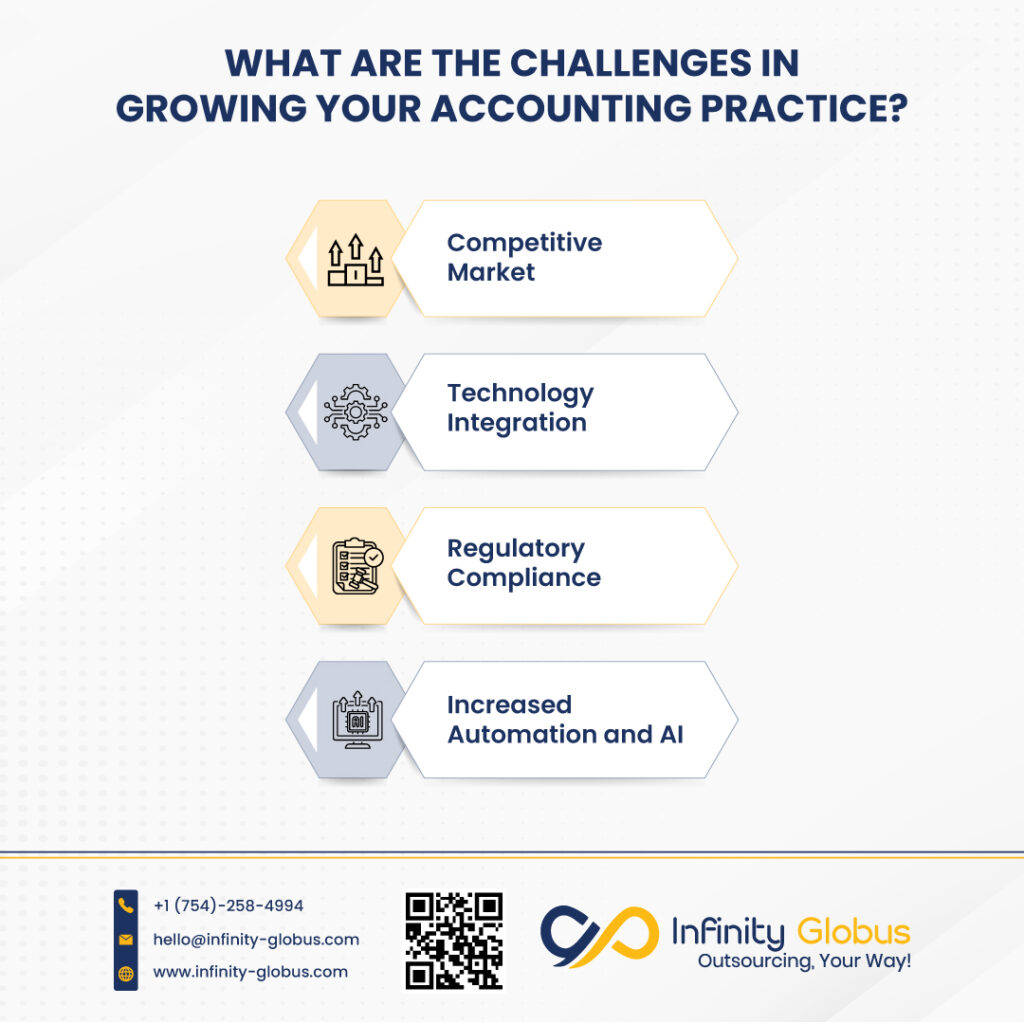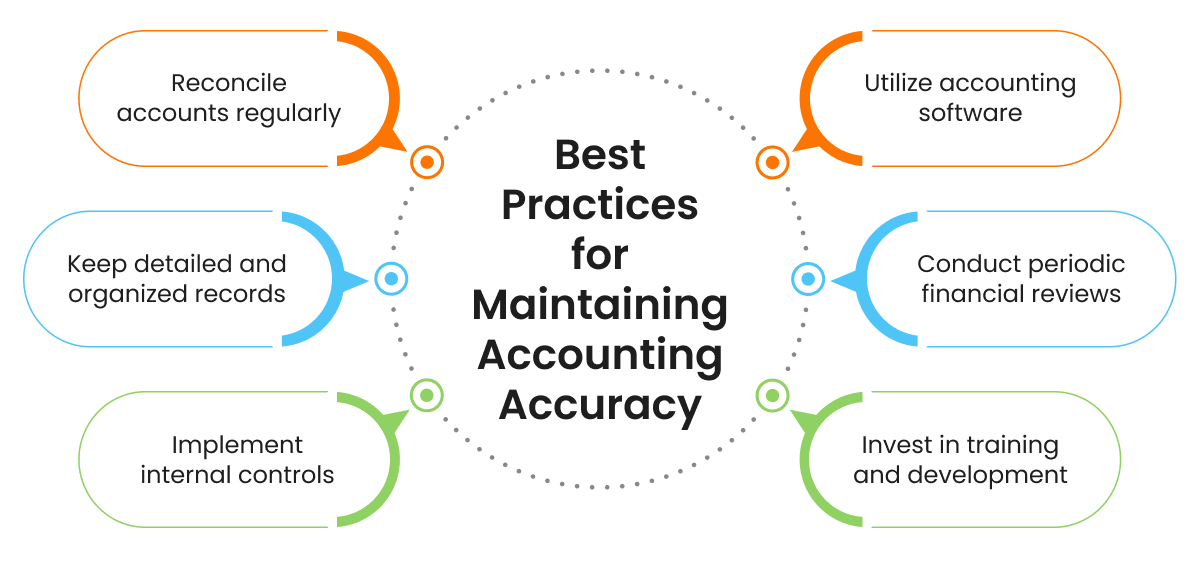Succentrix Can Help You Start an Accounting Practice and Build Your Reputation
Wiki Article
Leading Trends Shaping the Future of Accountancy Practices
As the bookkeeping industry continues to progress, a number of pivotal trends are arising that promise to redefine traditional techniques. The assimilation of man-made knowledge, the emphasis on automation, and shifts towards remote work are reshaping the landscape, while sustainability campaigns and improved information analytics are driving new criteria of responsibility.Increase of Artificial Knowledge
The surge of artificial intelligence (AI) in audit methods notes a substantial shift in the industry, driven by the demand for better performance and precision. AI innovations are progressively being incorporated into accounting software program, enabling companies to automate regular tasks such as data entrance, billing processing, and monetary coverage. This transformation enables accounting professionals to concentrate on higher-value activities, such as tactical planning and consultatory services.Additionally, AI enhances the precision of economic analyses by minimizing human error and enhancing data integrity. Artificial intelligence algorithms can examine substantial amounts of data to determine patterns and fads, providing insights that were formerly unattainable. This capability not only streamlines decision-making yet additionally permits real-time financial monitoring.
The implementation of AI in bookkeeping likewise promotes improved conformity with regulatory criteria, as AI systems can be programmed to flag inconsistencies and guarantee adherence to monetary regulations. As firms accept these innovations, the role of accounting professionals is progressing from traditional bookkeeping to becoming calculated partners within companies, geared up with sophisticated analytical skills. In general, the increase of AI in accountancy is redefining the occupation, leading the means for an extra cutting-edge and responsive financial landscape.
Emphasis on Automation
How can automation reshape the bookkeeping landscape? The assimilation of automation into bookkeeping practices is basically changing just how economic information is refined, assessed, and reported. By simplifying repeated tasks such as information entrance, reconciliation, and invoicing, automation enables accounting professionals to concentrate on higher-value activities, such as calculated decision-making and advising services.
The fostering of automation technologies, including robot process automation (RPA) and cloud-based remedies, enhances accuracy and lowers the possibility of human mistake. Real-time information handling encourages organizations with timely understandings, making it possible for even more positive monetary management. Furthermore, automated systems facilitate compliance by making sure that laws are consistently satisfied through built-in controls and audit trails.

Remote Job Change
As automation improves typical bookkeeping methods, the rise of remote work is additional changing the landscape of the profession. The COVID-19 pandemic accelerated a shift in the direction of flexible work plans, compelling audit companies to take on new technologies and interaction devices to maintain performance and customer involvement. This change has allowed firms to access a wider skill swimming pool, as geographical restraints reduce.Remote job has additionally triggered a reevaluation of operations and the execution of cloud-based options. These developments facilitate real-time collaboration, allowing groups to function flawlessly across various areas. Therefore, accounting professionals can deliver services a lot more efficiently and react to client needs faster.
Additionally, the emphasis on remote work has actually driven a social shift within companies, highlighting work-life equilibrium and worker health (Succentrix can help you start an accounting practice). Companies that welcome this change Discover More Here are most likely to draw in and keep leading skill, promoting an environment of development and adaptability
Nonetheless, the remote job version likewise offers difficulties, such as preserving information safety and ensuring compliance with regulative standards. As the accountancy profession proceeds to evolve, firms have to navigate these intricacies while taking full advantage of the advantages of remote job, eventually resulting in a much more resilient and agile industry.
Sustainability in Bookkeeping

The development of sustainability accountancy requirements, such as the Worldwide Reporting Campaign (GRI) and the Sustainability Bookkeeping Criteria Board (SASB), has actually provided frameworks that lead companies in measuring and disclosing their ESG performance. This not only boosts integrity but additionally promotes trust fund amongst capitalists and consumers who focus on sustainable practices.
Additionally, companies are progressively adopting incorporated reporting, which integrates economic and non-financial data to provide an all natural view of organizational performance (Succentrix can help you start an accounting practice). This strategy allows stakeholders to assess the lasting practicality of a firm, lining up financial success with lasting practices
As accountancy specialists welcome sustainability, they play a pivotal function in shaping business technique, promoting advancement, and promoting accountability. Inevitably, sustainability in audit is not just a fad; it is a vital part of contemporary company strategy that drives resilience and long-lasting success.
Enhanced Information Analytics
The growing focus on sustainability in bookkeeping has actually led the way for enhanced data analytics, which is transforming exactly how companies manage and interpret economic details. Succentrix can help you start an accounting practice. By leveraging sophisticated analytical tools, firms can currently sift via vast quantities of information to remove insights that drive tactical decision-making and enhance functional performanceBoosted data analytics allows accountants to relocate additional reading beyond traditional coverage strategies, supplying real-time information visualization and predictive analytics that facilitate proactive administration of monetary wellness. This shift not just sustains better compliance with sustainability policies but also straightens with stakeholder demands for transparency and responsibility.


As audit techniques progress, the duty of information analytics will certainly be essential in fostering a more lasting and durable economic atmosphere. Organizations that embrace these improvements will certainly gain an one-upmanship, placing themselves as forward-thinking leaders in the market.
Final Thought
In verdict, the future of accounting methods is being significantly affected by innovations in artificial knowledge, automation, remote work, sustainability, and improved data analytics. The ongoing combination of these components will specify the audit profession's trajectory.Report this wiki page